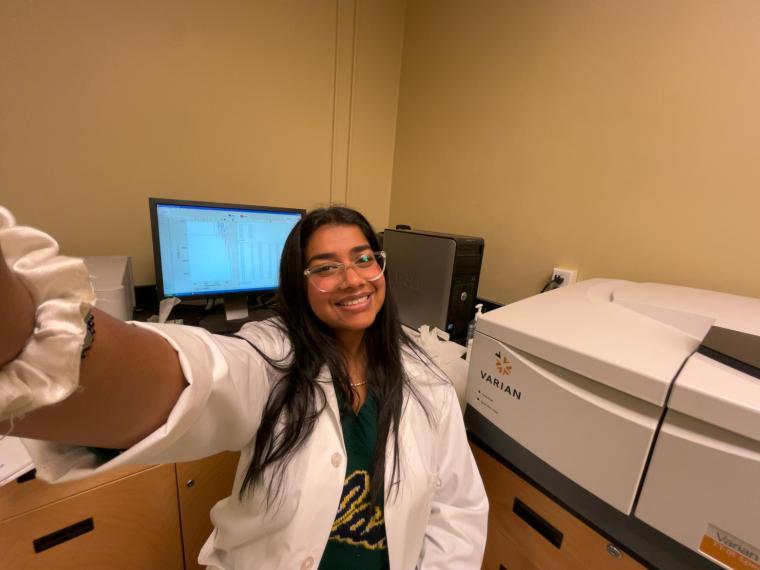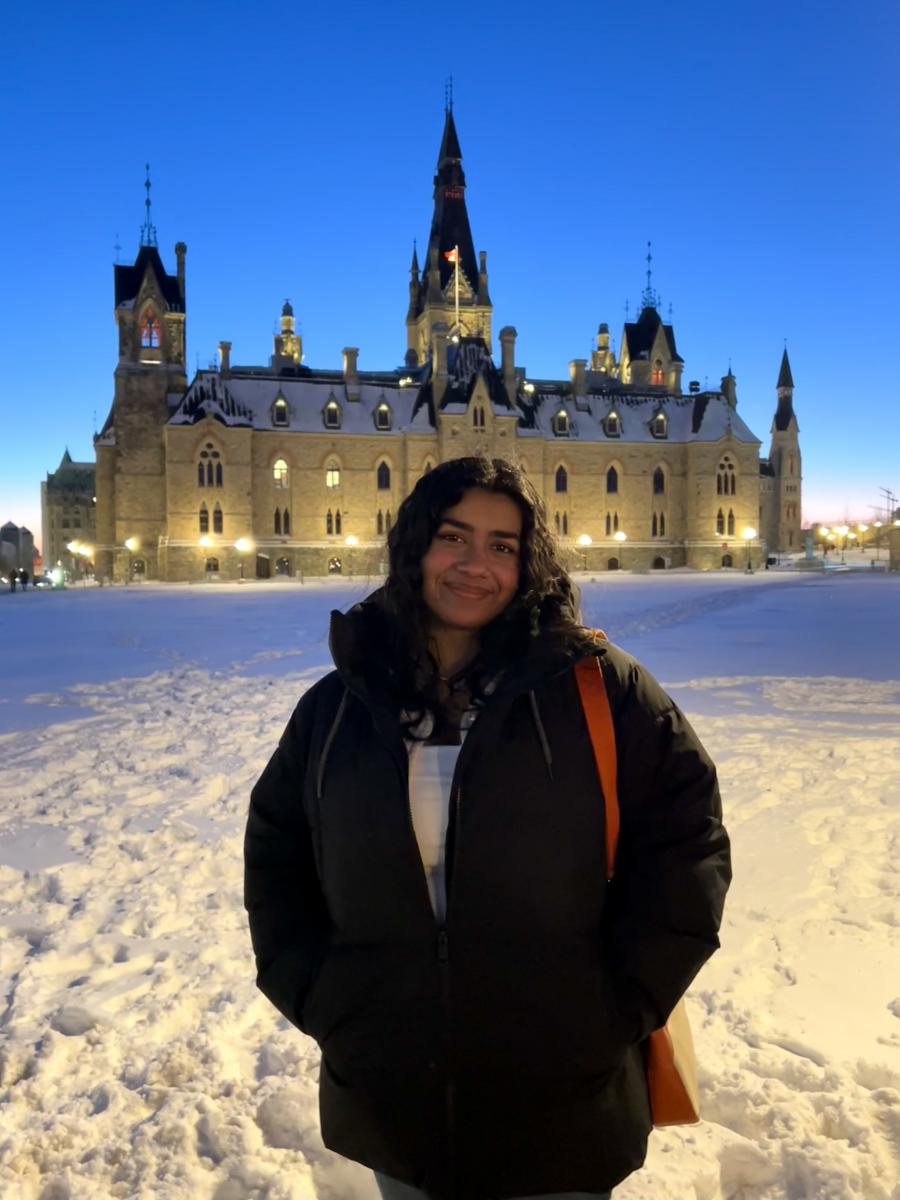Shaping a Greener Future: Environmental Science Student Vedika Nair’s Co-op Experience in Ottawa

Vedika Nair came to Canada from Kenya with a passion for environmental protection and a goal of making a global impact. Now studying in the Bachelor of Environmental Science, majoring in Environmental Science at OAC, she’s putting that passion into action through a co-op position with the Treasury Board of Canada in Ottawa, where she’s helping shape sustainable government purchasing policies. Growing up in Kenya’s, Vedika career journey has been shaped by U of G’s supportive faculty, welcoming student community, and a program that blends science, policy, and hands-on experience.
“I always knew I wanted to do something related to conservation and environmental protection,” says Vedika. “And I felt science was the most practical and powerful way to do that.”
Read more about her story below:
Choosing U of G for Environmental Science
Vedika’s university search began with a simple Google search about environmental co-op programs in Canada. The "University of Guelph" came up first.
“Guelph had one of the most comprehensive co-op programs I found,” she says. “You don’t just sit in lectures. There’s fieldwork, lab work, and the chance to really tailor your learning to what you care about.”
The program’s flexible first-year structure allowed her to discover her passion through flexible course structure.
“You don’t have to decide your major right away,” she explains. “I liked being able to explore my interests before committing to a specific stream.”
Vedika also chose to complement her science degree with a Certificate in Policy Administration, which included five electives focused on policy and governance.
“I wanted to understand both the science and the systems that support environmental decisions,” she says. That combo has proven especially useful during her co-op term.
Take the next step!
Apply to the University of Guelph
Environmental Science Co-op in the Capital
This year, Vedika is working in Ottawa as a Student Analyst with the Treasury Board of Canada’s Green Procurement Team. Her job is to help the federal government make environmentally sustainable purchasing decisions.
“My co-op term has been amazing,” she says. “I go through policies and reports to make sure sustainability is at the heart of what the government buys, including office supplies, construction materials, or even vehicles.”
She’s part of a team brainstorming ways to reduce emissions and improve sustainability across departments. “We’re developing new policies and reinforcing existing ones,” she explains. “I’ve even helped write guidelines for green procurement practices.”
What she’s learning in class connects directly to the work she’s doing.
“Whether it’s analyzing data, understanding climate policy, or applying environmental science, I see the value of my courses every day,” she says.

Student Life as an International Student in Canada
Vedika arrived in Canada in September 2023. It was her first time living away from home, as well as her first real winter.
“It was a big change,” she laughs. “But the support from the University of Guelph made everything easier. Everyone was so willing to help, especially during those first few weeks.”
Even though she missed Orientation Week, she quickly found her community.
“OAC and environmental science students are some of the kindest people I’ve met,” she says. “There’s a real sense of support and shared purpose.”
During her first winter break, Vedika volunteered in Dr. James Longstaffe’s lab at the Ontario Agricultural College, where she contributed to a research project that identifies different organic compounds, and potential contaminants present in soil samples.
“I wanted to make the most of my time here, and this was a chance to apply science beyond the classroom,” she says. “Dr. Longstaffe was so encouraging, it really made me feel like I belonged in the research community.”
The experience deepened her interest in environmental research and gave her confidence in a lab setting.
As she continues her studies, Vedika is focused on using her education to influence global environmental policy.
“I want to bridge science and policy to make real, lasting change,” she says.